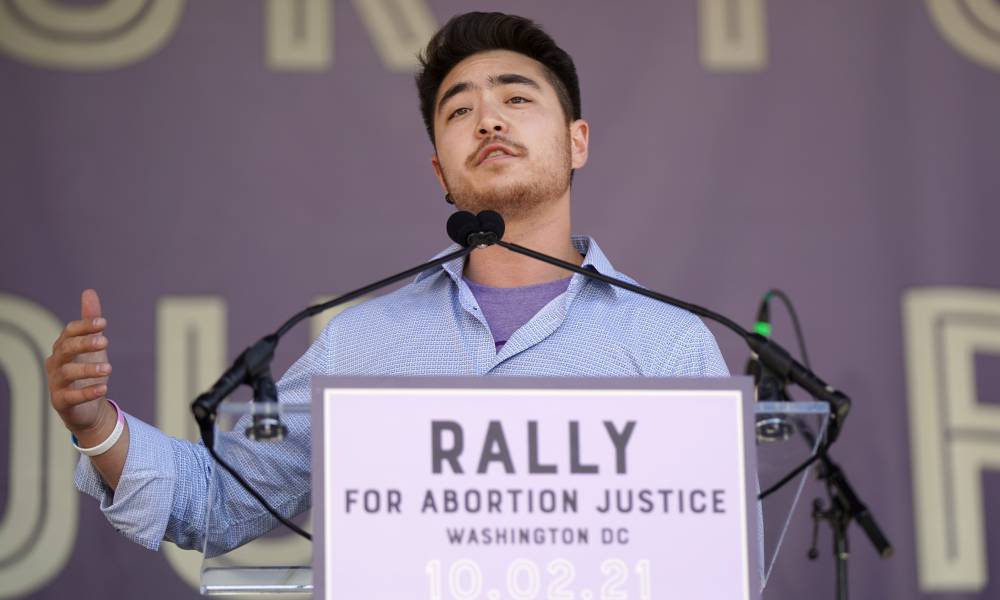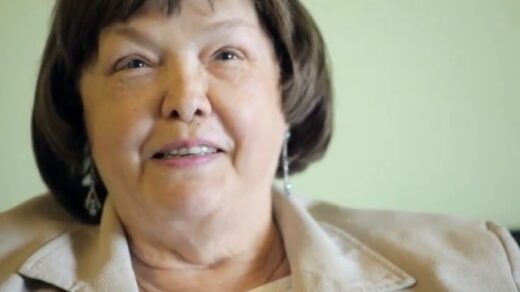This is why trans and non-binary voices need to be heard on Roe vs Wade
Author: Maggie Baska
Schuyler Bailar says the debate on abortion rights and being trans has made him “consider very deep and important decisions regarding my body”. (Provided)
Trans athlete and activist Schuyler Bailar explains why the possible overturning of Roe v Wade would be “devastating” for so many people.
Bailar swam for Harvard as the first openly trans athlete to compete in any sport on an NCAA Division 1 men’s team and is a prolific speaker, activist and educator on trans inclusion and trans rights.
He spoke to PinkNews about the potential impact of the Supreme Court rolling back Roe v Wade, the landmark decision that guaranteed abortion rights across the US, after a leaked opinion revealed that the court has tentatively voted to overturn it.

If Roe is overturned, it’s thought that 22 states would immediately outlaw abortion. Those with the means to do so would likely travel over state lines, to places where state legislation guarantees safe abortion.
But this is a costly, unwieldy option. It’s why overturning Roe v Wade would “disproportionally affect those who are already marginalised”, Bailar says, including the Black community, people of colour, disabled people and individuals living in poverty.
Statistics show that when abortion is outlawed, abortion rates don’t drop. In reality, bans only serve to endanger those in need.
Bailar believes it’s important to see individual fights to protect liberties such as abortion rights and LGBT+ rights as part of one “greater conversation”.
He says that the potential overturning of Roe v Wade would be a “devastating” moment for “most of society in different ways, even if they don’t see that”.
Last October, Bailar stood before thousands gathered in Washington DC for the fifth annual Women’s March and discussed how abortion healthcare impacts people across the gender spectrum. He reminded the crowd that the fight to protect abortion rights impacts women, trans men, non-binary people, genderqueer individuals, gender fluid folks and countless other communities.
“This is about all of us,” he declared.
Trans and non-binary people specifically “already have such reduced access to control over our bodies”, he told PinkNews.
“Even if you’re not a minor, it’s difficult to access gender-affirming healthcare in general. Trans people already have a high rate of medical discrimination.
“So when you add to that the potential not to be able to receive a safe and health abortion, it just further disenfranchises us and hands over the control of our bodies to the government and to people who are not us.”
Bailar said that though he hasn’t gotten pregnant or had to consider an abortion, he “very well could” find himself in such a position, and has plenty of experience in having to “consider very deep and important decisions regarding my body”.
“Those decisions are mine and mine alone – the decision to have top surgery, to take testosterone, to live as my true self openly and publicly in my body – that’s very important to me.”
“It’s my body, I should be allowed to do what I would like to do with my body and so should other trans, queer people and anybody else who’s capable of doing it.”
The potential rollback of Roe v Wade comes at a time when Republican state legislators are attacking the LGBT+ community, especially the trans community, with hateful legislation.
Bailar finds it all “devastating” and “exhausting”. He sees it all as a ploy by the establishment to maintain power while others are “dismantling this system of white supremacy, patriarchy, misogyny and transphobia”.
“We are in direct opposition to things that empower the privileged, and that’s a beautiful thing if you’re ready to move on in the world, if you’re ready to be sensitive, if you’re ready to be forward-thinking and evolve,” Bailar says.
“But these people in power don’t want to evolve because going forward means a place with less power for white, cis, het men.”
Actual Story on Pink News
Author: Maggie Baska





